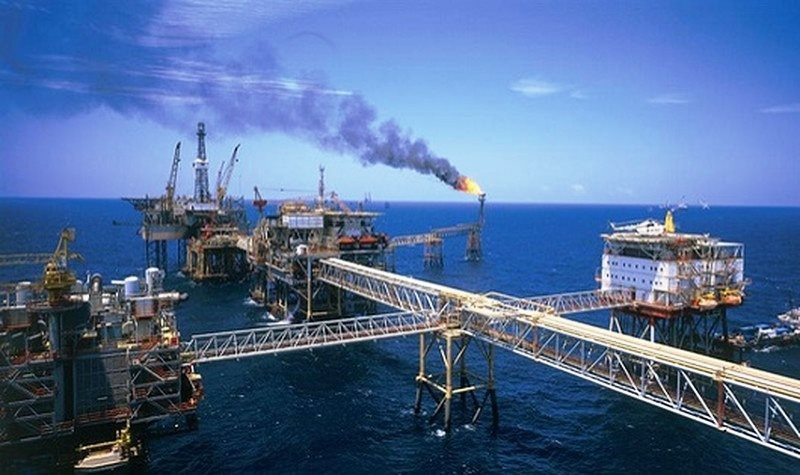Safety zones around offshore petroleum installations in Vietnam
What are the regulations on safety zones around offshore petroleum installations in Vietnam? - Kim Giang (Dong Thap)

Safety zones around offshore petroleum installations in Vietnam (Internet image)
Regarding this matter, LawNet would like to answer as follows:
1. Safety zones around offshore petroleum installations in Vietnam
According to Clause 2, Article 8 of the Petroleum Law 2022, safety zones around offshore petroleum installations include:
- Petroleum reserved blocks (no-go zones) of offshore petroleum installations, except for subsea installations, refer to areas with a radius of 500 meters measured from the outermost edges of the installations in all directions including anchorages of floating vehicles and mobile structures, except for special cases decided by the Government;
- No-anchoring areas or areas under prohibition on deep seabed operations refer to areas with a radius of 02 nautical miles measured from the outermost edges of the petroleum installations including subsea installations; vehicles and vessels shall not be permitted to anchor or perform deep seabed operations, except for special cases approved by the contractors or decided by the Prime Minister.
2. Tasks for ensuring petroleum security in Vietnam
According to Clause 4, Article 8 of the Petroleum Law 2022, organizations and individuals performing petroleum operations must carry out the following tasks for ensuring petroleum security:
- Formulate documents on security management, including security management programs, risk assessment reports and emergency response plans and submit them to competent authorities for approval thereof;
- Establish, maintain and develop security management systems, thereby ensuring control of risks incurring during the entire process of petroleum operation;
- Establish and maintain emergency response systems in a manner of ensuring the efficiency and minimizing losses of people and assets or damage to environment due to incidents or accidents;
- Equip with warning systems that are able to detect possible bad circumstances causing harm for installations and environment and automatically give notices of normally unmanned offshore petroleum installations to operation centers ;
- Prepare emergency vessels for ensuring timely rescue in cases of emergency in respect of normally manned offshore petroleum installations. Operators working in oil neighboring oil fields or blocks use the same emergency vessel but availability of emergency vessels must be ensured.
3. Rules for conducting fundamental investigations of petroleum and its operations in Vietnam
Rules for conducting fundamental investigations of petroleum and its operations according to Article 6 of the Petroleum Law 2022 are as follows:
- Petroleum resources of Vietnam must be owned by the whole people and represented by the State of Vietnam and uniformly managed.
- Organizations and individuals must conduct fundamental investigations of petroleum and its operations on the basis of respecting the independence, sovereignty, territorial integrity, sovereign rights and jurisdiction, ensuring the national interests and security of Vietnam, complying with Vietnamese laws and international treaties to which the Socialist Republic of Vietnam is a signatory.
- Organizations and individuals conducting fundamental investigations of petroleum and its operations must comply with regulations of Vietnamese laws on national defense, security, social order and safety, community health, environmental protection, response to climate change, response to oil spills, protection of natural resources and cultural heritages and preservation of historical - cultural relics and scenic spots.
- Organizations and individuals conducting fundamental investigations of petroleum and its operations must use modern technologies, comply with the national technical regulations and apply standards in conformity with regulations of Vietnamese laws and international petroleum industry practices.
- Organizations and individuals carrying out petroleum operations must take out insurance policies for installations, equipment and vehicles serving petroleum operations, environmental liability insurance (ELI), civil third party liability insurance, personal insurance and other insurance according to regulations of Vietnamese laws and international petroleum industry practices.
- All samples, documents, information and data collected during the process of fundamental investigation of petroleum and its operations must be managed by the State of Vietnam. The collection, transfer, management, use and security of samples, documents, information and data collected during the process of fundamental investigation of petroleum and its operations must comply with regulations of Vietnamese laws, investigators’ agreements and petroleum contracts.
- Key word:
- petroleum security
- in Vietnam
- Vietnam
- Cases of land rent exemption and reduction under the latest regulations in Vietnam
- Economic infrastructure and social infrastructure system in Thu Duc City, Ho Chi Minh City
- Regulations on ordination with foreign elements in religious organizations in Vietnam
- Increase land compensation prices in Vietnam from January 1, 2026
- Determination of land compensation levels for damage during land requisition process in Vietnam
- Who is permitted to purchase social housing according to latest regulations in Vietnam?
-

- Number of deputy directors of departments in Vietnam ...
- 15:04, 05/03/2025
-

- Cases ineligible for pardon in Vietnam in 2025
- 14:43, 05/03/2025
-

- Decree 50/2025 amending Decree 151/2017 on the ...
- 12:00, 05/03/2025
-

- Circular 07/2025 amending Circular 02/2022 on ...
- 11:30, 05/03/2025
-

- Adjustment to the organizational structure of ...
- 10:34, 05/03/2025
-

- Notable new policies of Vietnam effective as of ...
- 16:26, 11/04/2025
-
.Medium.png)
- Notable documents of Vietnam in the previous week ...
- 16:21, 11/04/2025
-
.Medium.png)
- Notable documents of Vietnam in the previous week ...
- 16:11, 02/04/2025
-
.Medium.png)
- Notable new policies of Vietnam to be effective ...
- 16:04, 02/04/2025
-
.Medium.png)
- Notable new policies of Vietnam effective from ...
- 14:51, 21/03/2025

 Article table of contents
Article table of contents
